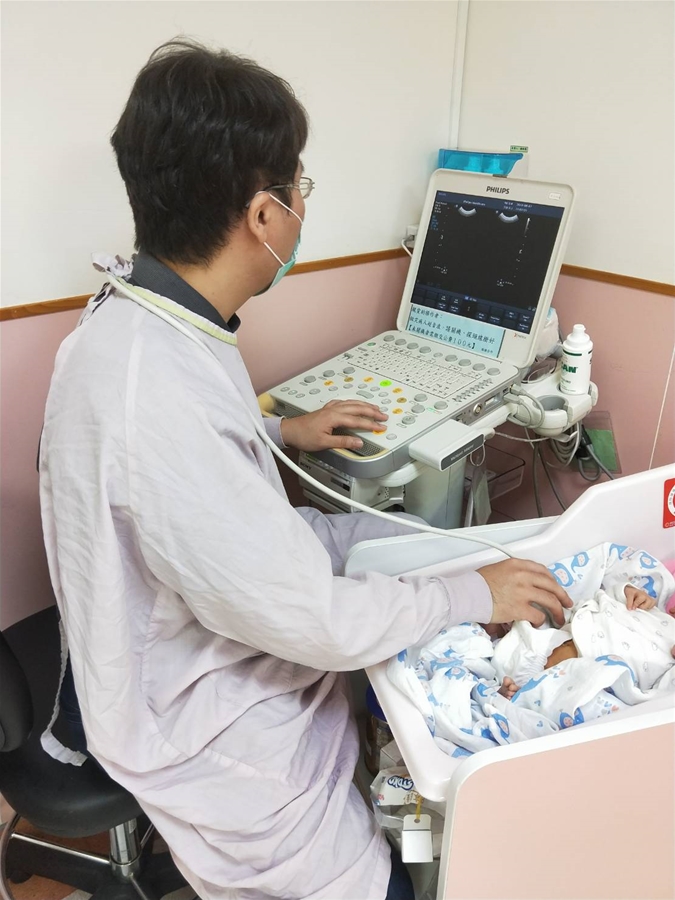For newborn babies, parents always want to give them the best of everything besides careful care. However, some parents may worry about not knowing what's going on with the baby, thus delaying treatment. With the rapid development of medicine and continuous improvement of screening tools, many diseases can be detected early, so that babies can receive treatment early and grow up healthy. Among them, the most rapid and simple detection method chosen by many parents is the ultrasound examination for newborns at their own expense. (if symptoms have occurred, they do not have to pay for related items that have been covered by the National Health Insurance (NHI) program).



An ultrasound scan is characterized by high safety, no radioactivity, no invasion and no pain at all. It can be used in pregnant women and babies with ease. On the one hand, it can examine the internal organs of the body, on the other, it can present the structure through different angles of the probe. It is a powerful tool for the diagnosis of congenital abnormalities in newborns at present. A neonatal ultrasound can detect many diseases early, identify problems and deal with them immediately to avoid serious sequelae or irreversible regrets. So, if you can't think of a birth gift to give your dearest baby, a newborn ultrasound scan is your first choice!
Pediatric neurosonography
- It uses the advantage that the anterior fontanelle of the skull has not been closed to scan out the anatomical structure of the brain, and check whether there are abnormalities in the ventricles and structures of the baby's brain. It is used to diagnose congenital brain structural abnormalities such as cerebral hemorrhage, cerebral embolism, hydrocephalus, subdural hemorrhage and other brain diseases.
Pediatric cardiovascular ultrasound
- According to previous clinical experience, congenital heart disease occurs in about eight out of every 1,000 infants, and only two or three of them are diagnosed after the symptoms manifest themselves before the age of one. When the symptoms are not visible, it is impossible to know through auscultation or observation of the blood oxygen concentration of the newborn. Therefore, it is necessary to observe whether there is congenital heart disease through echocardiography, such as atrial and ventricular septal defect, or even some complex congenital heart diseases such as transposition of the great arteries.
Pediatric abdominal ultrasound
- Abdominal ultrasound is the best screening tool for neonatal abdominal diseases, which is of great value for the early detection thereof. Most congenital abnormalities, structural abnormalities and tumors in the abdomen cannot be diagnosed by appearance. Abdominal ultrasound can be used to examine the abdominal organs (liver, bile, pancreas, spleen, portal vein) and determine whether there is any abnormality or other disease.
Pediatric renal ultrasound
- It can observe and understand the size of the kidneys and the density and thickness of the renal parenchyma, evaluate whether there is congenital abnormality, such as urinary system deformity, renal insufficiency, hydronephrosis, single kidney, polycystic structure, bad kidney, and check whether there is any abnormal lump and other diseases.
Pediatric Hip Ultrasound
- Developmental dysplasia of the hip (DDH) is the most common hip abnormalities in infants and young children. Its incidence is estimated to be 1.5 per 1,000 births. Over time, it may result in limb length discrepancy, limited hip abduction, and limp. Hip ultrasound is able to evaluate the structure and stability of the hip joints as well as to screen the presence of abnormality, which allows early intervention for the best of outcome.
Ultrasound package for newborns at one’s own expense
- Package A: Ultrasound for heart + brain + kidneys
- Package B: Ultrasound for heart + brain + abdomen
- Package C: Ultrasound for heart + kidneys + abdomen
- Package D: Ultrasound for brain + kidneys + abdomen
- Package E: Ultrasound for heart + brain + kidneys+ abdomen
- Package F: Ultrasound for heart + brain + kidney + abdomen+ hip

